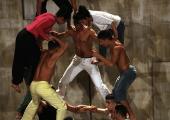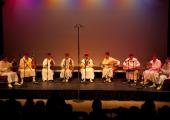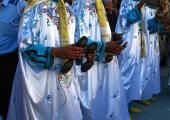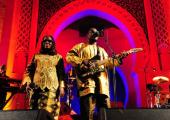theartsdesk in Western Sahara: The World's Most Remote Film Festival
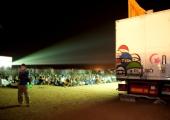
FiSahara takes place in a refugee camp in the Algerian desert
During the 1960s, when decolonisation movements were sweeping the world, it was joked that, after achieving independence, a country had to do three things: design a flag, launch an airline and found a film festival. Western Sahara has a flag but no airline and, despite a 35-year struggle, has yet to achieve independence. The closest Western Sahara comes to its own film festival is the Sahara International Film Festival (known as FiSahara), the world's most remote film festival, whose eighth edition took place this month in a refugee camp deep in the Algerian desert.

